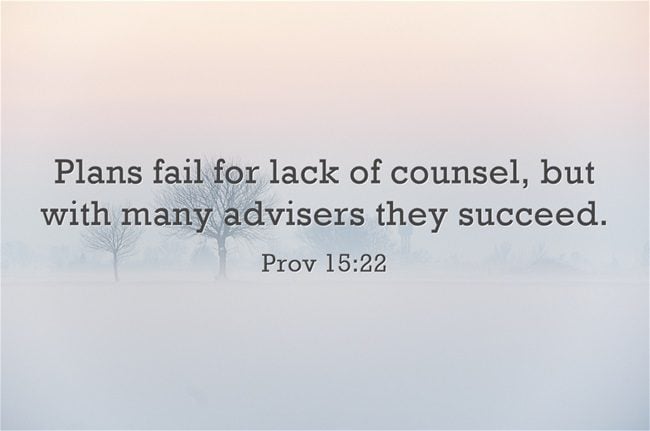What type of questions does a pastor ask in premarital counseling? Why ask these questions?
Why premarital Counseling?
Why should there be premarital counseling for couples who are engaged? For one thing, the divorce rate is lower for those who seek and receive premarital counseling. This is a main reason I strongly urge premarital counseling but also part of the reason is that the couple might not see the choices that they will face down the road. They will have decisions that both will have to make and come to mutually agreeable positions on. Have you considered these questions? What if your wife doesn’t want to live in the country but in a big city? What if you desire to have no children for a while or no children while the other spouse wants a baker’s dozen and wants them right away? Will they agree on how to discipline their children? Are they willing to give up time with their friends since they are to be more devoted to their spouse now? What does this do to the relationships of the couple’s personal friends and maybe even family? Has there already been pressure from the future in-laws about how they should live? What personal freedoms might they lose? Are they willing to give up some of their future “free time” that they now have? Has there been premarital sex and if so, do they know that puts them at a greater risk for adultery and divorce? What are the expected roles and duties for each spouse? What does one spouse expect from the other? Do they agree on church denominations? Does one plan to go to one place while the other attends a different church? These questions are very important for the future stability and security of the marriage. If these things don’t get settled early, the marriage could be in for some very rough sailing and could even end up in divorce.
Safety in Numbers
We have already read many of the reasons to have premarital counseling and this may be part of the reason why Proverbs 11:14 says “Where there is no guidance, a people falls, but in an abundance of counselors there is safety.” In other words, not everyone will get it wrong. Most people make wiser decisions if they make them collectively. There might be someone who sees something that the others don’t or most will know from experience that making a particular choice is going to result in trouble. Marriages take work and planning and “Plans are established by seeking advice” (Prov 20:18). The Bible is clear that “Plans fail for lack of counsel, but with many advisers they succeed” (Prov 15:22). Failing to plan is planning to fail. Seek counsel from godly Christian men and women, church elders, the pastor, and anyone you respect. Marriage is a lifetime commitment. Most people getting married didn’t come into marriage having a Plan B.
Unequally Yoked
The Bible forbids Christians from marrying someone who is not one. Paul asks “what portion does a believer share with an unbeliever? What agreement has the temple of God with idols” (2nd Cor 6:15b-16a)? We are commanded to “go out from their midst, and be separate from them, says the Lord” (2nd Cor 6:17a). It is expressly clear that we should “not be unequally yoked with unbelievers. For what partnership has righteousness with lawlessness? Or what fellowship has light with darkness” (2nd Cor 6:14). Oil and water don’t mix any more than an atheist or a believer. Imagine what this might do to the children? Couldn’t they easily be caught in the middle? The company we keep can ruin our morals (2nd Cor 15:33). Pastors will ask these questions; do you agree on biblical doctrines and are your beliefs about God very similar?
Blind Spots
Love is said to be blind and that may or may not be true but if love is blind, doesn’t this mean that there are many blind spots for those who are deeply in love? We can wear the romantic “rose colored glasses” and miss what others are seeing until the Honeymoon’s over. A good friend will tell you the truth, even if it makes you made. A good friend loves you enough to risk offending you just because they love you. The reality is “Faithful are the wounds of a friend; profuse are the kisses of an enemy” (Prov 27:6). Solomon wasn’t the only one who had such wisdom as the psalmist also wrote “Let a righteous man strike me–that is a kindness; let him rebuke me–that is oil on my head” (Psalm 141:5). Flattery does nothing to make someone a better person but instead, “Whoever rebukes a person will in the end gain favor rather than one who has a flattering tongue” (Prov 28:23).
Conclusion
I hope I have persuaded you to seek premarital counseling if you’re engaged. You can save a lot of heartache by doing so. You can also lessen the chance for divorce which gets even more painful when children are involved. Better to prepare ahead of time and ask some good questions first because “Where there is no guidance, a people falls, but in an abundance of counselors there is safety” (Prov 11:14).
Article by Jack Wellman
Jack Wellman is Pastor of the Mulvane Brethren church in Mulvane Kansas. Jack is also the Senior Writer at What Christians Want To Know whose mission is to equip, encourage, and energize Christians and to address questions about the believer’s daily walk with God and the Bible. You can follow Jack on Google Plus or check out his book Teaching Children the Gospel available on Amazon.
















